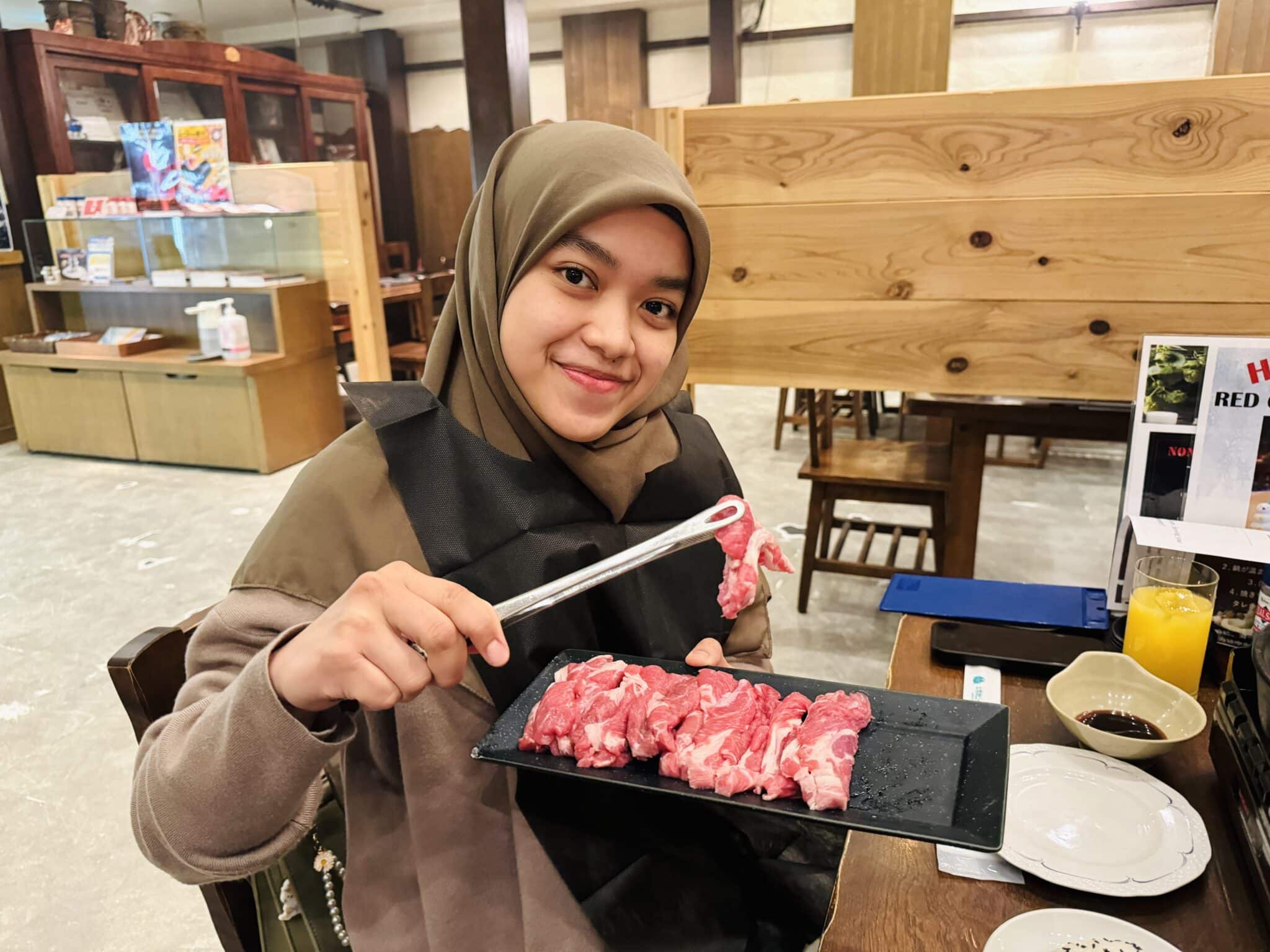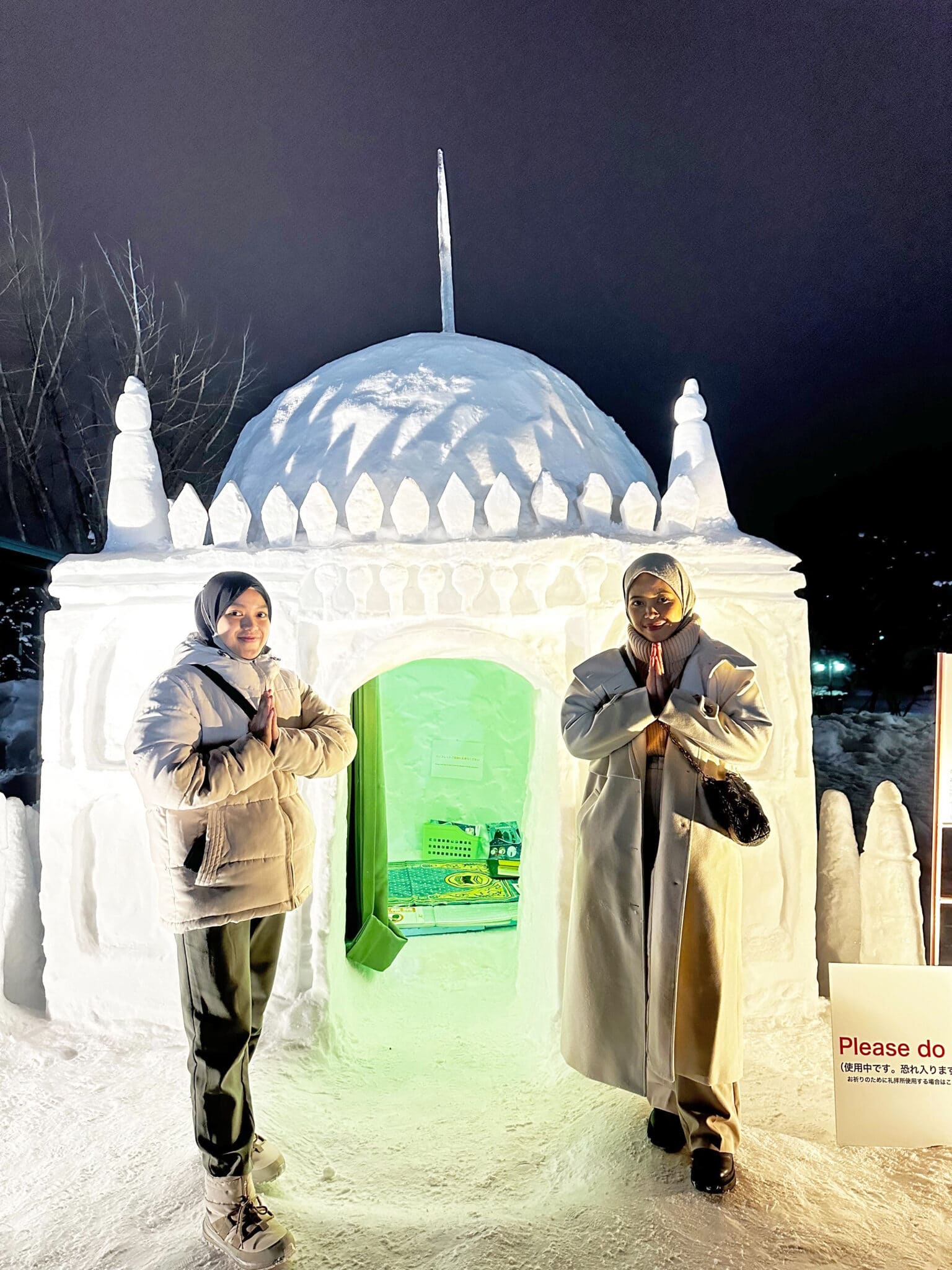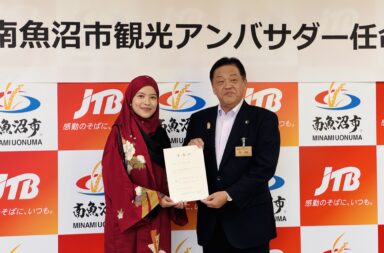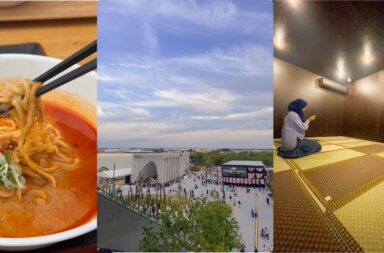Retasya’s Tale of Fasting Amidst Hokkaido’s Winter Wonderland
In the heart of Hokkaido, where the snow blankets the landscape in a serene white, Retasya, a young Indonesian Muslim girl, finds herself observing Ramadan in a way that’s far from the warm, familiar settings of her hometown.
Having lived in Takasu, Asahikawa-City, Hokkaido, for a year and four months, Retasya’s journey of faith and adaptation paints a picture of resilience and community in the most unexpected conditions.
A New Routine in the Snow
Retasya works as a caregiver, a role she has embraced since she arrived in Hokkaido. This year marks her second Ramadan in Japan, a country that contrasts sharply with her native climate and culture, especially during the holy month.
Unlike her first Ramadan in Japan, which was marked by homesickness and tears, Retasya now approaches this spiritual period with a steadier heart and a smile, finding humor in her adjustment.

Retasya savors halal Genghis Khan in Asahikawa City
The Unique Ramadan Experience
One might imagine Ramadan to be synonymous with heat and thirst, yet in Hokkaido’s snowy embrace, Retasya finds an unexpected ally in the cold.
“Alhamdulillah, because it’s cold in Hokkaido, I hardly feel thirsty or hungry,” she shares.
The snow and chill, rather than being obstacles, have become companions in her fasting journey, making the fasts unexpectedly easier.

Retasya (left) and her friend are in front of the snow mosque at the Asahikawa Winter Festival.
For suhoor and iftar, Retasya opts for meals that are easy to prepare, artfully blending the essence of Japanese cuisine with the familiar flavors of her Indonesian homeland.
“Udon and soba are my favorite Japanese dishes because they are quick and easy to make. Sometimes, I also prepare Indonesian dishes!” she shared.
Despite the lack of a local Muslim community, Retasya has found ways to stay connected to her faith. Through online lectures and listening to sholawat (Islamic hymns), she fills her surroundings with the spirit of Ramadan, proving that the essence of this holy month transcends physical boundaries.
Challenges and Joys
Retasya candidly shares the highs and lows of observing Ramadan so far from home. The distance from her family casts a shadow, especially during Eid celebrations, when the absence of familiar faces and traditions is felt most keenly.
Yet, there’s a silver lining in her experience in Hokkaido: the absence of the physical challenges typically associated with fasting, like extreme thirst or hunger. It feels more like a spiritual cleanse or a diet, she jokes.
A Personal Reflection
Retasya’s story is a beautiful testament to the universal nature of Islamic practices and the resilience of faith under any circumstances. Her experience in Hokkaido, while unique, underscores the adaptability required to maintain religious observances away from one’s native land and community.
It’s a reminder that Ramadan, with its call to reflection, patience, and connection to God, can be observed meaningfully, regardless of where one finds oneself in the world.
As the snow continues to fall in Hokkaido, Retasya’s journey through Ramadan serves as an inspiring narrative of finding warmth in faith and community, even in the coldest of climates.
See Also
Exploring Halal Delights in Asahikawa: A Muslim Traveler’s Guide


